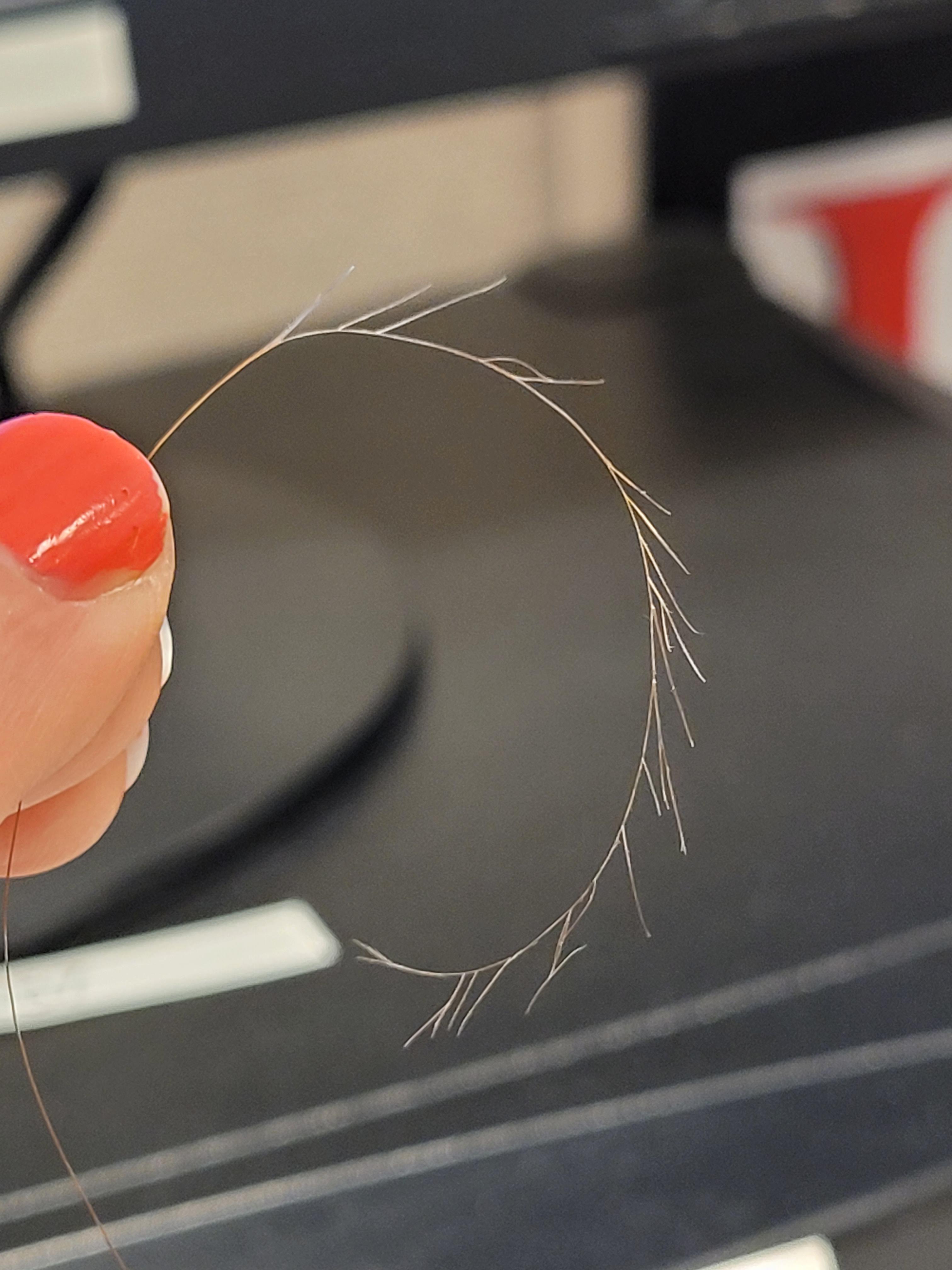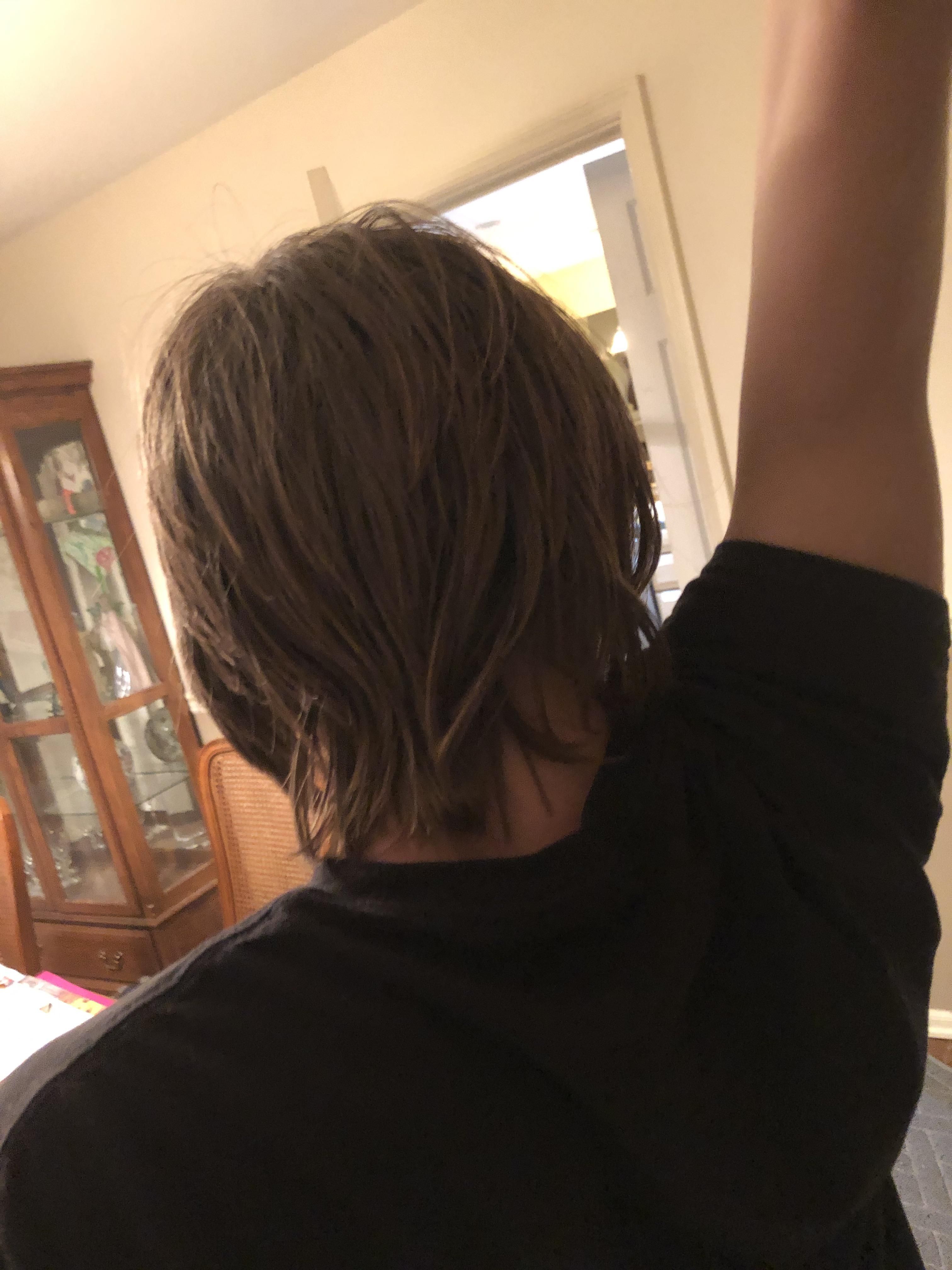Split ends are a common hair concern that many people face, but recognizing them isn't always straightforward. Understanding what split ends are and how they manifest in your hair is crucial to maintaining healthy locks. In this guide, we'll delve into everything you need to know about identifying split ends, preventing them, and treating them effectively. With this knowledge, you can achieve and maintain the luscious, smooth hair of your dreams.
When it comes to hair health, split ends are often a sign of damage that needs attention. They occur when the hair shaft becomes dry and brittle, causing the ends to fray and split. This can be due to various factors such as excessive heat styling, harsh chemical treatments, or even environmental conditions. Spotting split ends early can help you implement the right care strategies to restore your hair's vitality and prevent further damage.
In the following sections, we'll provide you with a comprehensive understanding of how to know if you have split ends, including tell-tale signs and symptoms. We'll also explore the best practices for prevention and treatment, ensuring you have all the information needed to keep your hair in optimal condition. Whether you're dealing with split ends for the first time or looking for ways to avoid them in the future, this guide is your go-to resource for healthy, beautiful hair.
Read also:Is Charlie Day Jewish An Insight Into The Life Of The Beloved Actor
Table of Contents
- What Are Split Ends?
- Common Causes of Split Ends
- How to Know If You Have Split Ends?
- Signs and Symptoms of Split Ends
- Types of Split Ends
- Why Do Split Ends Form?
- Preventing Split Ends
- Effective Treatments for Split Ends
- Do Home Remedies Work?
- Professional Treatments for Split Ends
- How Often Should You Trim Your Hair?
- Lifestyle Changes for Healthier Hair
- How to Maintain Healthy Hair Ends?
- FAQs
- Conclusion
What Are Split Ends?
Split ends, scientifically known as trichoptilosis, occur when the protective outer layer of the hair cuticle is damaged. This damage exposes the inner cortex of the hair, leading to splitting. The hair becomes frayed and weak, often resulting in multiple splits at the end of a single hair strand.
Split ends can vary in appearance, ranging from a basic 'Y' split to more complex feathering. Over time, if left untreated, split ends can travel up the hair shaft, causing further damage and breakage.
Common Causes of Split Ends
Several factors contribute to the formation of split ends, including:
- Excessive heat styling from tools like flat irons, curling wands, and blow dryers.
- Harsh chemical treatments such as coloring, perming, or relaxing.
- Lack of moisture and hydration in the hair.
- Environmental stressors like UV rays, pollution, and wind.
- Improper hair care practices, including rough brushing and towel drying.
How to Know If You Have Split Ends?
Identifying split ends is a key step in maintaining healthy hair. Here are some methods to determine if you have split ends:
- Visual Inspection: Examine the tips of your hair under good lighting. Look for any signs of splitting or fraying.
- Touch and Feel: Run your fingers through the ends of your hair. Split ends often feel rough and uneven compared to healthy hair.
- Strand Test: Take a single strand of hair and gently pull it apart. If it splits easily, you likely have split ends.
Signs and Symptoms of Split Ends
Common signs and symptoms of split ends include:
- Frayed or uneven hair tips.
- Difficulty in detangling hair, especially at the ends.
- Increased hair breakage and shedding.
- Dull and lifeless appearance of the hair.
Types of Split Ends
Split ends can present in various forms, each indicating a different level of damage:
Read also:Dragana Mirkovic Net Worth Her Wealth And Legacy
Basic Split
The most common type, appearing as a simple 'Y' shape at the end of the hair strand.
Feather Split
Characterized by multiple splits along the sides of the hair strand, resembling a feather.
Knot Split
Occurs when the hair tangles upon itself, forming a knot and eventually splitting.
Why Do Split Ends Form?
Split ends form due to a combination of mechanical, chemical, and environmental stressors that weaken the hair strand. Over time, these factors compromise the integrity of the hair, leading to splits. Understanding the root causes allows for better prevention and care strategies.
Preventing Split Ends
Prevention is key to maintaining healthy hair and avoiding split ends. Here are some tips:
- Limit the use of heat styling tools and always use a heat protectant.
- Incorporate regular deep conditioning treatments to keep hair hydrated.
- Use a wide-tooth comb to detangle hair gently.
- Protect hair from environmental damage with hats or UV protectant sprays.
- Opt for a balanced diet rich in vitamins and minerals to support hair health.
Effective Treatments for Split Ends
Once split ends form, treating them promptly is essential to prevent further damage:
Trimming
The most effective way to remove split ends is by trimming them off. Regular trims every 6-8 weeks can help maintain healthy ends.
Hair Masks
Nourishing hair masks can provide moisture and repair to damaged hair, temporarily concealing split ends.
Do Home Remedies Work?
Many individuals turn to home remedies for treating split ends, but their effectiveness varies. Some popular remedies include:
- Applying coconut oil for deep hydration.
- Using egg masks for protein treatment.
- Rinsing with apple cider vinegar to seal cuticles.
While these remedies can provide temporary relief, they are not a substitute for professional treatments or regular trims.
Professional Treatments for Split Ends
For more severe cases of split ends, professional treatments can offer significant benefits:
Keratin Treatment
This treatment helps strengthen and smoothen the hair, reducing the appearance of split ends.
Hair Serums
Professional-grade serums can provide a protective coating to the hair, preventing further splitting.
How Often Should You Trim Your Hair?
Regular trims are crucial for maintaining hair health and preventing split ends from traveling up the shaft. Ideally, you should trim your hair every 6-8 weeks to remove split ends and promote healthy growth.
Lifestyle Changes for Healthier Hair
Adopting certain lifestyle changes can significantly impact your hair's health:
- Stay hydrated to keep your hair moisturized from within.
- Reduce stress through activities like yoga and meditation, as stress can contribute to hair damage.
- Ensure a balanced diet with sufficient vitamins and minerals for hair strength.
How to Maintain Healthy Hair Ends?
Maintaining healthy hair ends requires consistent care and attention. Here are some tips:
- Use leave-in conditioners to keep ends hydrated.
- Minimize mechanical damage by using soft hair ties and silk pillowcases.
- Avoid excessive brushing, especially when hair is wet.
FAQs
1. Can split ends be repaired without cutting?
While some products claim to repair split ends temporarily, the most effective solution is to trim them off.
2. How can I prevent split ends if I use heat styling tools regularly?
Always use a heat protectant and keep the heat setting on your tools as low as possible.
3. Are there any specific hair care products recommended for split ends?
Look for products containing keratin, argan oil, or shea butter, as they can help strengthen and nourish the hair.
4. Does diet affect the health of my hair and split ends?
Yes, a balanced diet rich in vitamins and minerals is essential for maintaining healthy hair and preventing split ends.
5. How long does it take to see improvement in split ends after treatment?
Results vary based on the treatment used, but improvements can often be seen within a few weeks with consistent care.
6. Can environmental factors contribute to split ends?
Yes, factors such as UV exposure, pollution, and wind can cause hair damage leading to split ends.
Conclusion
Understanding how to know if you have split ends and taking proactive steps to address them is essential for maintaining healthy, beautiful hair. With regular trims, proper hair care, and lifestyle changes, you can prevent split ends from becoming a persistent problem. Remember to stay informed and adapt your hair care routine as needed to ensure your hair remains strong and vibrant.

